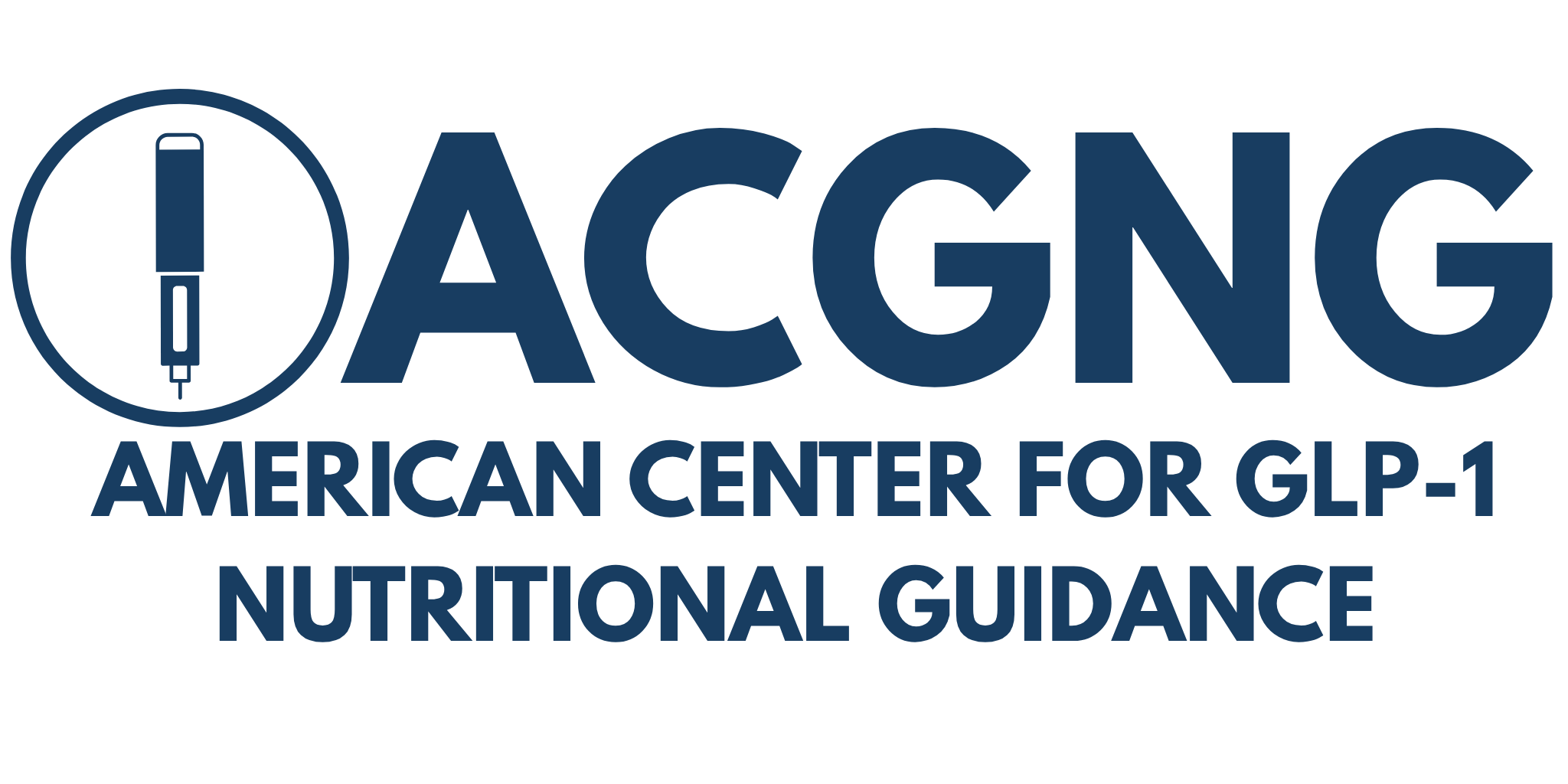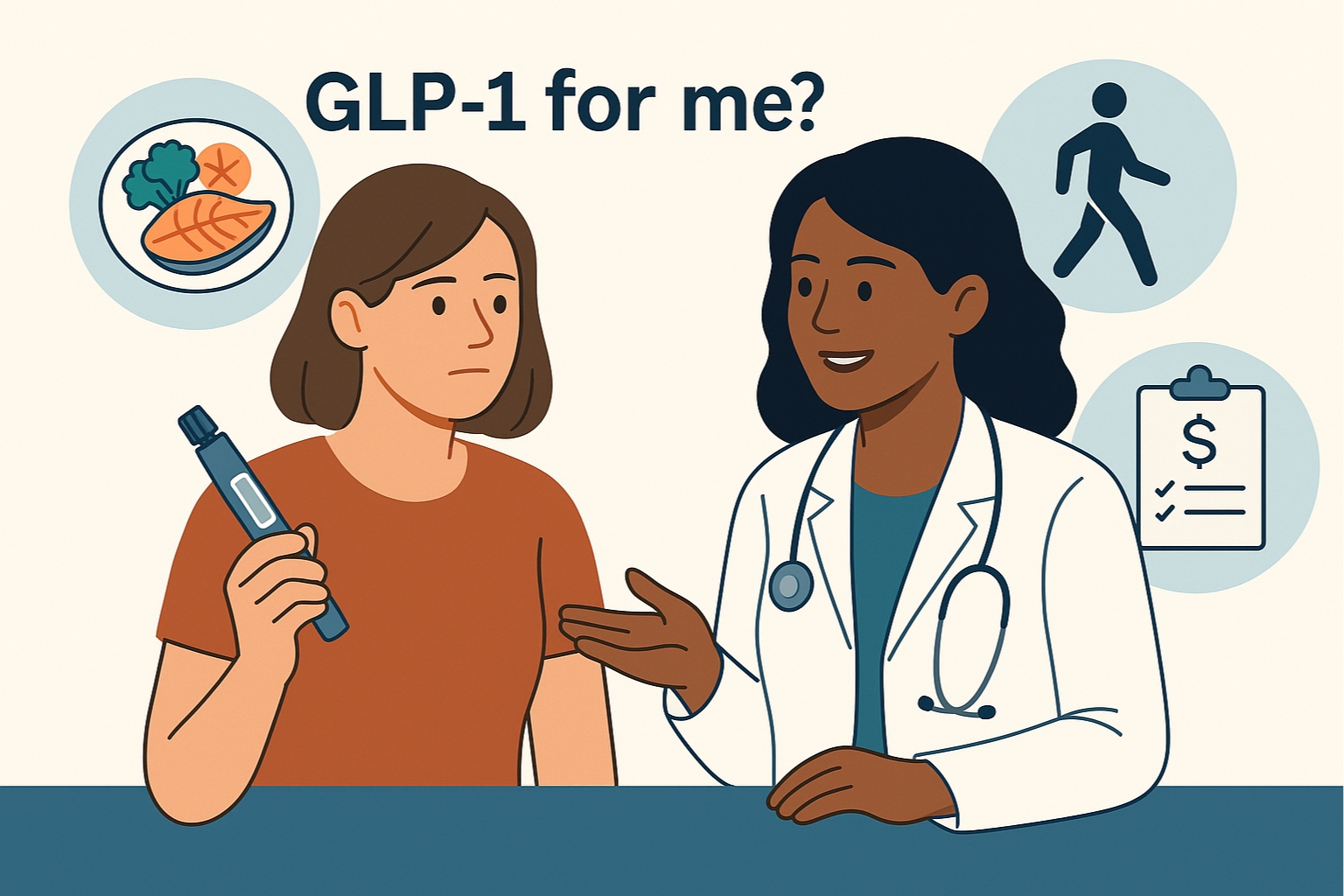If you’re considering GLP-1 injections as a potential treatment for weight loss, you’re not alone. GLP-1 (Glucagon-Like Peptide-1) medications are gaining popularity as a part of weight management strategies. However, before making any decision, it’s important to understand how GLP-1 injections work, who might benefit from them, and who should consider alternative options.
What Are GLP-1 Injections?
GLP-1 is a hormone naturally produced by the intestines that helps regulate blood sugar and appetite. GLP-1 receptor agonists (such as semaglutide and liraglutide) mimic the effects of this hormone, resulting in reduced appetite and slowed gastric emptying, which leads to weight loss.
GLP-1 medications are primarily used to treat type 2 diabetes but have also been approved for weight loss in individuals without diabetes. These medications are administered through a weekly or daily injection, depending on the specific drug.
Who Should Consider GLP-1 Injections for Weight Loss?
GLP-1 injections may be a suitable option for individuals who meet certain criteria:
- Adults with Obesity or Overweight: If your body mass index (BMI) is 30 or greater, or if your BMI is 27 or greater and you have weight-related health conditions (such as high blood pressure or sleep apnea), GLP-1 injections could be an effective treatment for weight loss.
- Failure of Lifestyle Changes: If you’ve struggled to lose weight through diet and exercise alone, GLP-1 medications may offer a solution.
- Underlying Health Conditions: Individuals with conditions like type 2 diabetes may see additional benefits from GLP-1 medications, as they help regulate blood sugar levels while promoting weight loss.
Why GLP-1 Injections Might Be Right for You
There are several reasons why GLP-1 injections might be a good fit for your weight loss journey:
- Proven Efficacy: Clinical studies have shown that GLP-1 medications can lead to significant weight loss, with some individuals losing 10-20% of their body weight over the course of treatment.
- Appetite Suppression: GLP-1 injections can help reduce hunger and cravings, making it easier to stick to a reduced-calorie diet.
- Improved Health Markers: In addition to weight loss, GLP-1 medications can help lower blood sugar, reduce cholesterol levels, and improve blood pressure in many patients.
Why GLP-1 Injections Might Not Be Right for You
While GLP-1 injections are effective for many, they are not for everyone. You should avoid GLP-1 medications if you:
- Are Pregnant or Breastfeeding: GLP-1 medications are not recommended for pregnant or breastfeeding women, as they may pose risks to the baby.
- Have a History of Pancreatitis: GLP-1 medications may increase the risk of pancreatitis (inflammation of the pancreas), so those with a history of the condition should consult with a doctor.
- Have Thyroid Cancer or Multiple Endocrine Neoplasia: GLP-1 injections are contraindicated for people with a family history of thyroid cancer or conditions like MEN2 (Multiple Endocrine Neoplasia), as these medications can increase the risk of thyroid tumors.
GLP-1 for Pediatric and Adolescent Use
In some cases, GLP-1 medications may be considered for pediatric and adolescent patients struggling with obesity. However, the safety and efficacy of GLP-1 for children are still being evaluated, and treatment decisions should be made under the guidance of a healthcare provider. Pediatric use of GLP-1 medications should be carefully monitored, and it’s essential to assess whether other treatment options might be more suitable for younger individuals. Read more about GLP-1 for Pediatric and Adolescent here.
Tools & Calculators
Before making a decision about GLP-1 injections, it’s important to assess your weight, health status, and overall suitability for treatment. Use the following tools to help you make an informed decision:
How Can I Afford GLP-1 Medication?
GLP-1 medications can be costly, especially for those without insurance coverage. Fortunately, there are options to help make these medications more affordable:
- Look into patient assistance programs offered by pharmaceutical companies.
- Check if your health insurance plan covers GLP-1 medications.
- Explore discount programs or prescription savings cards that can reduce out-of-pocket costs.
For more information on how to afford GLP-1 medications, visit our dedicated page on How Can I Afford GLP-1 Medication?
Scientific and Medical References
The following scientific and medical references support the information presented on this page:
- Rubino, F., et al. (2021). “Glucagon-like peptide-1 receptor agonists for weight management in individuals with obesity.” *The Lancet Diabetes & Endocrinology*, 9(9), 597-608. DOI: 10.1016/S2213-8587(21)00163-2
- Wilding, J. P., et al. (2020). “The efficacy and safety of once-weekly semaglutide for weight management in overweight or obese adults.” *New England Journal of Medicine*, 382(12), 1096-1107. DOI: 10.1056/NEJMoa2002218
- American Diabetes Association. (2021). “Standards of medical care in diabetes—2021.” *Diabetes Care*, 44(Supplement 1), S1-S2. DOI: 10.2337/dc21-S001

